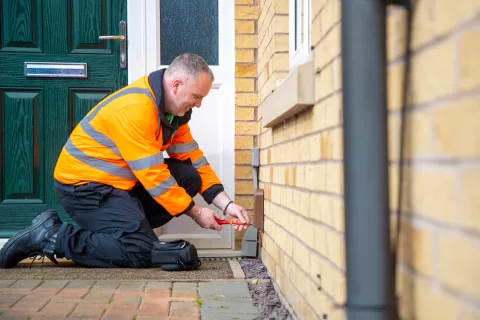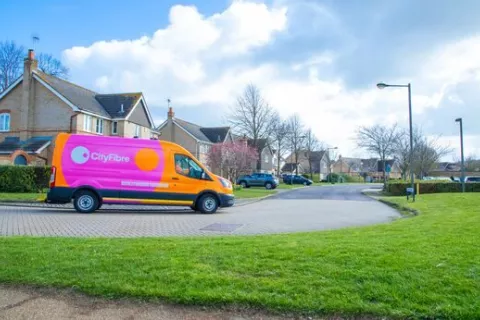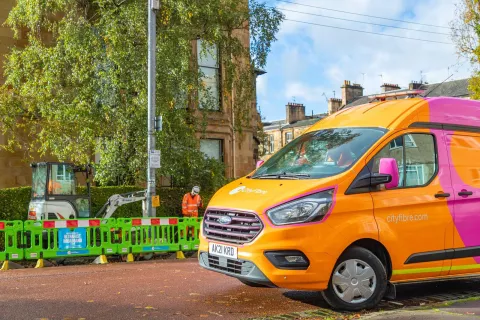UK gamers’ survey highlights shortcomings of aging infrastructure, which is costing them time, wins and the chance to take up new technology.
The everyday gaming experience of the UK’s 32 million gamers is being undermined by archaic digital infrastructure, according to new research from full fibre infrastructure builder CityFibre.
The survey of over 1,000 serious gamers conducted by Censuswide found that connectivity issues (too much lag) had hit more than half of respondents’ gaming performance (54%), while 45% said it had even lost them a match. Overall, two thirds (66%) said that the responsiveness of their internet connection - or that of other players - had interrupted their gaming experience at least once a week and 6 in 10 (60%) had been unable to enjoy a game due as a result.
Most worrying is the time-cost the gaming community suffers because of slow download speeds. Overall, the gamers surveyed reported that they could spend up to more than six and a half days a year waiting for games to update and over two and a half days a year for games (or an expansion packs) to download*.
This loss of time is borne out starkly when looking at the size of imminent game releases. With a total size of 101GB, downloading COD: Black Ops 4 at the UK’s mean download speed of 18.57Mbps**, would take 12 hours. That’s longer than it would take to fly to developer Treyarch’s headquarters in California or finish the main campaign of any of the previous editions. Also, with the total size of Red Dead Redemption 2 having now been confirmed as 105GB, downloading it uninterrupted would take at least
12 and a half hours at the UK’s mean download speed.
The survey also highlighted the barriers poor connectivity creates, which is holding back UK gamers from adopting new technology and trends. Almost four in 10 (38%) said they thought their connection would discourage them from adopting or participating in 4K gaming; 45% thought it would inhibit them from getting involved in online tournaments and over a third (34%) said it would hold them back from exploring virtual reality gaming – the latest frontier in gaming technology.
The problem for gamers is more complex than just low speeds and large download files, which is a common complaint given the UK’s recent drop in global speed rankings to an astonishing 35th place. A significant and commonly reported issue is ‘high ping’ – a phenomenon that can be attributed to the bottlenecking, long-distance lag associated with copper connections – even in part fibre services. More than four fifths (85%) thought that their gaming performance would improve if they had access to a 100 per cent fibre connectivity and ultra-low latency.
New game streaming services being launched in north America, Asia and Europe depend on mass market fast internet and may point the way to the future of gaming, with only full fibre able to realise the potential of those technologies. At EGX 2018, the UK’s biggest games show, considerable anger and frustration was revealed during more than 40 interviews CityFibre conducted with employees of developers and publishers, large and small, in relation to the UK’s broadband infrastructure.
The survey findings, according to CityFibre Director of Strategy and Public Affairs, Mark Collins, cast a spotlight on the impact delayed investment in next generation full fibre could have on the growth and future success of Britain’s thriving gaming community and its significant market position.
He explained: “The UK is the fifth largest gaming market place in the world. The industry employs over 20,000 people, making it a multi-million-pound contributor to the UK economy.
“It’s clear that gamers want better connectivity because it will give them negligible latency, symmetry of connection and great reliable speed. However, the current confusion around fibre advertising means that many will still be paying more for unreliable connection, as they seek the full-fibre gold standard but instead get a poor service that’s strangled by copper from the cabinet.”
CityFibre’s ongoing campaign to bring about a more regulated use of the term ‘fibre’ in UK broadband ads is born from the recognition that consumers need to be more informed about their connectivity if the UK Government
is to deliver its promise of full fibre as standard by 2033.
Mark added: “As the limits of our aging infrastructure are reached, gamers will become increasingly frustrated with the services they are able to access. This could present a major threat to the sector’s ability to grow, and UK gamers’ ability to play. CityFibre is proud to support UK gamers and developers by building high speed full fibre networks in the UK, bringing us closer to a lag-free future.”
Methodology: The research was conducted by Censuswide, with 1005 online gamers between 17.09.2018 - 18.09.2018. The survey was conducted from a random sample of UK gamers. Censuswide abide by and employ members of the Market Research Society which is based on the ESOMAR principles. Serious gamers in this release is defined as respondents who game at least 4-6 days a week on a computer/console.
Britain’s broadband speed ranking is drawn from research published
here.
Employment figures for the UK gaming industry can be found
here.
* Calculations for potential times spent waiting for a game (expansion pack) to download or games to update were calculated by deriving the mean spent each month for each and then multiplying by 12 to get a yearly figure.
** https://www.cable.co.uk/broadband/speed/worldwide-speed-league/
UK gaming industry:
From an economic perspective, achieving a full fibre Britain by 2033 is vital as the world moves increasingly online, and the gaming sector is no exception. According to recent data from the Association for UK Interactive Entertainment (UKIE), the estimated UK consumer spend on games was valued at a record £5.11bn in 2017, up 12.4% from 2016 (£4.33bn). The highest growth area was in digital and online gaming, which was worth 1.6bn in 2017. More stats and facts about the sector can be found here.



